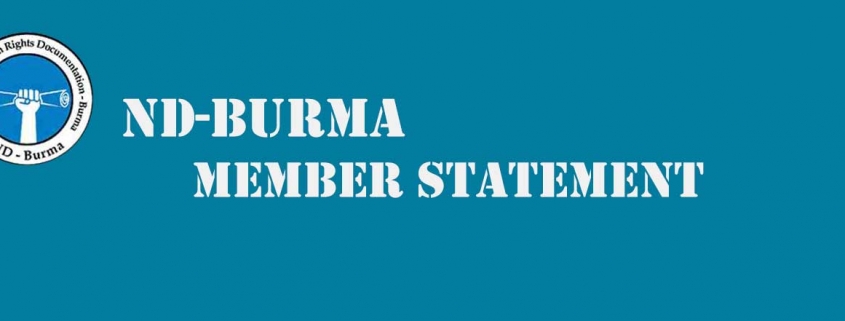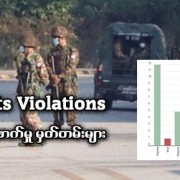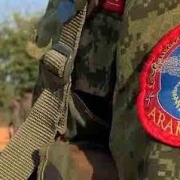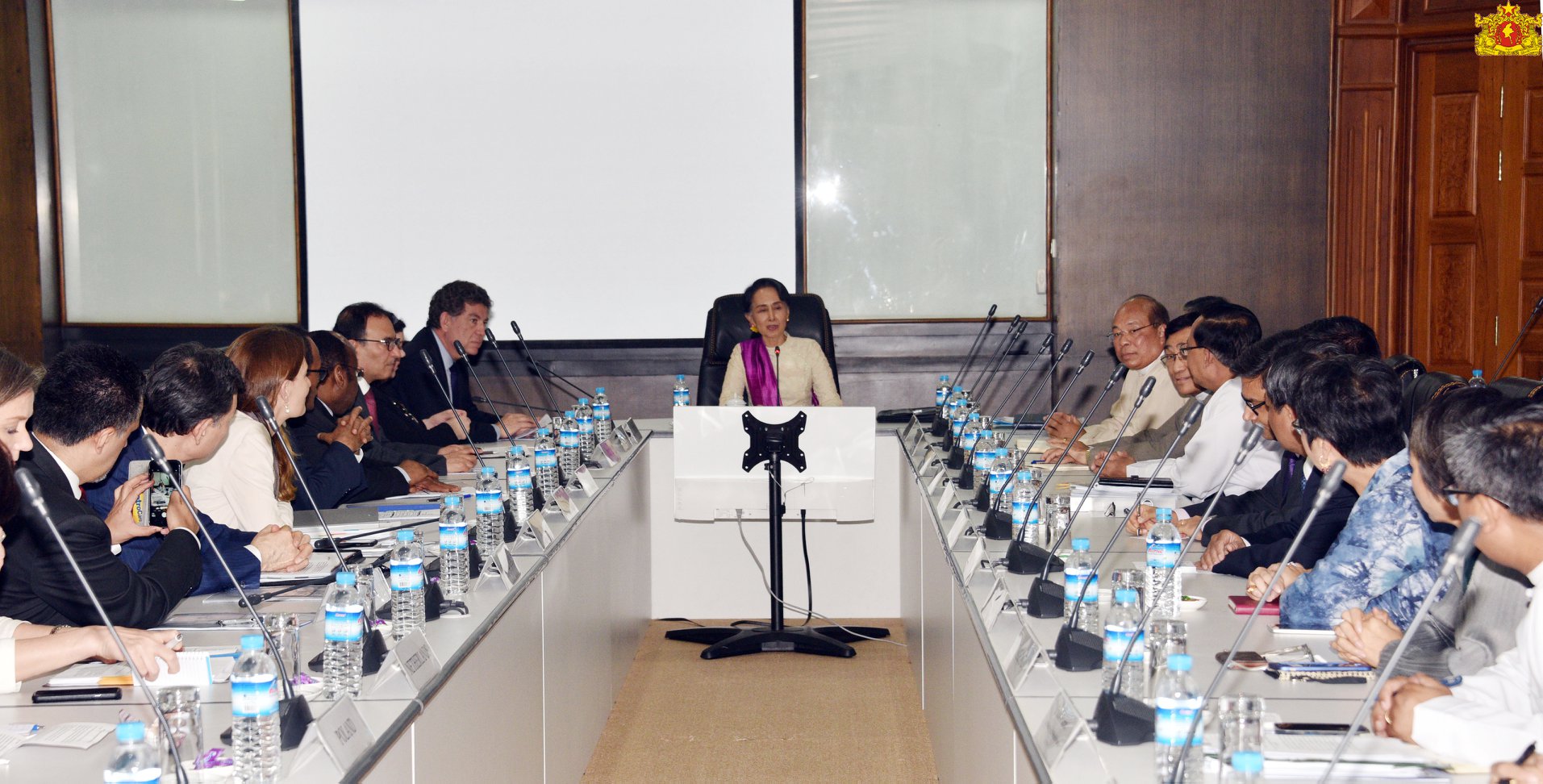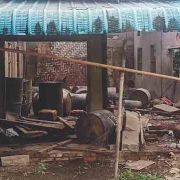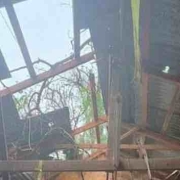On World Refugee Day, the Human Rights Foundation of Monland Calls for an Immediate End to the Targeting of Civilians by the Military Junta

20 June, 2023
On World Refugee Day, the Human Rights Foundation of Monland (HURFOM) condemns the military junta’s ongoing violence perpetrated against innocent civilians in Southeastern Burma. Since the attempted coup on 1 February, the Burma Army has escalated its combat operations in HURFOM-targeted documentation areas of southern Karen State, Mon State and the Tanintharyi Region, resulting in a wave of internally displaced people and conflict-affected refugees. Their presence and indiscriminate attacks have made it increasingly challenging for them to access food, according to field reports from the HURFOM mobile documentation team.
The number of displaced individuals fleeing their homes in Thaton District, Mon State, Kawkareik District, Karen State, and at least five townships in the Tanintharyi region has rapidly increased in recent months. Meanwhile, the ongoing violence by the junta has caused a profoundly concerning humanitarian crisis across southeast Burma.
At least 480,000 people have been forced to flee their homes in the region. Between 800 and 1,200 are affiliated with different rights-based groups, including the Civil Disobedience Movement. With no place to call home, they have sought temporary shelter in areas controlled by Ethic Revolution Groups, including Brigade 6 of the Karen National Union and resettlement sites under the New Mon State Party. Some have sought refuge along the Thai-Burma border and face increasing security threats and a lack of protection amid the escalating armed conflict.
Internally displaced people (IDPs) and refugees face many challenges. They live in fear and anxiety, not knowing when the next civilian-targeted attack by the Burma Army will take place. More than 400 armed clashes have broken out between the junta forces and the Karen National Liberation Army-led joint armed resistance forces since the failed coup. The junta has increasingly used aerial attacks and artillery weapons, targeting the rural villages where IDPs are sheltering in bunkers or displacement camps. Even in some mixed-controlled areas between the NMSP and KNU, such as the western part of Brigade 6, that shares the border with the eastern Mon State, have experienced unexpected airstrikes.
Between May 7 to 9, although there was no armed conflict in the area on those days, the military junta deployed airstrikes to bomb six villages. The targets were Karen and Mon ethnic villagers and those affiliated with the Civil Disobedience Movement (CDM) sheltering alongside locals in eastern Ye Township, Mon State. Due to this sudden aerial attack, at least three people died, and eight were seriously injured. The assault led an estimated seven-hundred villagers to flee their homes.
Along the Thai – Burma border, the situation has not improved. Many arriving on Thai soil urgently need medical attention or seek asylum in a third country. Those needing safety and protection from violence in Burma often do not have the required documents for travelling or staying in Thailand. The previous Thai government failed to condemn the coup or the junta’s violence. Community-based organizations have worked to close gaps in providing shelter, food, and water. However, many challenges remain.
Cross-border aid is vital to ensure that those suffering from the daily horrors of war can have their basic needs met with dignity. Therefore, HURFOM calls upon international donors, government bodies, policymakers, and UN agencies to act with clear, coordinated action and compassion by providing humanitarian assistance through cross-border channels. Aid distributed through urban routes in Burma, such as Yangon, is very high-risk. The junta has intercepted aid repeatedly, and the likelihood that these aid convoys will reach those in need is often unsuccessful. Cross-border support is the most effective, trusted, and reliable as border-based organizations have been doing so for decades.
HURFOM also calls upon neighbouring countries like Thailand and India to open their borders to those fleeing persecution in Burma, grant them food and protection, and promote accessible pathways so first responders can reach those in need.
The international community must support ethnic health organizations and their respective departments. This includes the Backpack Health Worker Team in Karenni State, Karen State, Mon State, and the Tanintharyi region, who have provided life-saving services for over three decades in each representative area for the refugees and IDPs.
And for ASEAN – as a collective civil society community, HURFOM has continued our calls to the current Chairperson, and the ASEAN Coordinating Center for Humanitarian Assistance on Disaster Management (AHA Centre(, the ASEAN arm of humanitarian aid, to explain the failure to deliver humanitarian assistance inside the country. Our key message is that any help facilitated through the AHA-Center, will not be able to effectively provide material or monetary aid as needed, especially with the support going through the junta. The AHA Center must revert its assistance through the cooperation and involvement of ethnic resistance organizations, service providers and NUG affiliates on the ground. Doing so otherwise risks further weaponization of humanitarian aid amidst their campaign of terror.
We want to encourage the international community and UN agencies to keep supporting these conflict-affected communities, ensure their fair treatment under international humanitarian law, and enable them to access urgent assistance such as through UNHCR.
As a human rights organization and documentation team, HURFOM remains committed to documenting human rights violations and advocating for international action in Burma. We believe in the fight to secure the rights of internally displaced people and refugees on the international stage to continue living with hope, which aligns with this year’s theme: “Hope Away from Home.”
Media Contact
Nai Aue Mon, HURFOM Program Director
Email: auemon@gmail.com
Signal: +66 86 167 9741
HURFOM was founded by exiled pro-democracy students from the 1988 uprisings, recent activists and Mon community leaders and youth. Its primary objective is restoring democracy, human rights and genuine peace in Burma. HURFOM is a non-profit organization, and all its members are volunteers with a shared vision for peace in the country.

